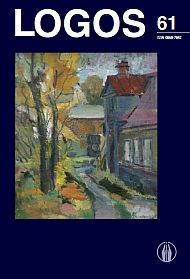Gilberto Poriečio Platoniškasis Realizmas: Prigimties Definicijos
The Platonic Realism of Gilbert of Poitiers: The Definitions of Nature
Author(s): Dalia Marija StančienėSubject(s): Metaphysics, Epistemology, Historical Linguistics, Philosophy of Language, Hermeneutics
Published by: Visuomeninė organizacija »LOGOS«
Keywords: Gilbert of Poitiers; aequivoca; substance; nature; soul; intellect;
Summary/Abstract: The article analyzes the metaphysics of Gilbert of Poitiers, a representative of Shartre School, who created an original system of linguistic analysis by means of grammar and dialectics and provided the status of rational discipline for theology. Relaying on the concept of equivocation, he expanded the limits of medieval linguistics. The concept enabled theologians to interpret Biblical texts anew by showing the peculiarities of the divine hypostases, the unity of God’s self-awareness, and the transcendental value of person. Relaying on Boethius, Gilbert separated substance form subsistence and singled out two modes: quod est (what is) and quo est (kuo yra). While characterizing nature, Gilbert pointed up its equivocity which is connected with polysemy. He explicated this equivocity by dividing the concept into its structural components whose specific peculiarities reflected the real essence of their unity, i.e. of the concept itself.
Journal: LOGOS - A Journal of Religion, Philosophy, Comparative Cultural Studies and Art
- Issue Year: 2009
- Issue No: 61
- Page Range: 96-105
- Page Count: 10
- Language: Lithuanian

